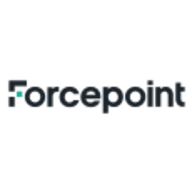


GitGuardian Platform and Forcepoint Risk Adaptive Protection for DLP are competing products in the realm of data loss prevention (DLP). GitGuardian Platform demonstrates an edge in pricing and support, yet Forcepoint Risk Adaptive Protection for DLP is considered a superior choice due to its advanced features, making it worthwhile for its price.
Features: GitGuardian Platform identifies and manages secrets within code repositories and integrates robustly with CI/CD tools. It provides tools specifically targeted at developers. Forcepoint Risk Adaptive Protection offers comprehensive risk-adaptive protection, dynamically adjusting security levels based on context, better addressing diverse enterprise security needs.
Ease of Deployment and Customer Service: Forcepoint Risk Adaptive Protection employs a customizable cloud-based deployment benefitting from responsive customer support, enhancing adaptability in diverse IT environments. GitGuardian Platform also provides smooth integration, with a focus on developer-oriented tools.
Pricing and ROI: GitGuardian Platform's lower cost and strong ROI are attractive to smaller teams focusing on code security. Forcepoint requires a higher upfront investment but assures enhanced ROI through its scalable security framework, making it suitable for enterprises seeking long-term, context-aware protection solutions.

| Company Size | Count |
|---|---|
| Small Business | 46 |
| Midsize Enterprise | 8 |
| Large Enterprise | 25 |
| Company Size | Count |
|---|---|
| Small Business | 10 |
| Midsize Enterprise | 9 |
| Large Enterprise | 13 |
Cloudflare enhances web performance and security with features like CDN caching and DDoS mitigation while providing easy DNS management and intuitive setup through its user-friendly dashboard.
Cloudflare is recognized for its comprehensive web security and performance solutions. Speed improvements are achieved through caching mechanisms and DDoS protection, combining ease of DNS management with flexible page rules. The robust analytics and threat insight tools provide valuable data, assisted by a user-friendly dashboard allowing quick setup and configuration. An API offers dynamic DNS settings ensuring low latency and high performance across the globe.
What are Cloudflare's key features?Cloudflare finds utility across industries for DNS management and defense mechanisms. Its content delivery network assures fast content distribution and fortified security. Businesses integrate features like web application firewalls, load balancing, end-to-end SSL, and zero trust to protect websites from cyber threats while ensuring resilience and reliable performance.
Forcepoint Risk Adaptive Protection for DLP offers dynamic security measures tailored to data protection needs, ensuring sensitive information is safeguarded efficiently.
Forcepoint Risk Adaptive Protection for DLP is designed to provide a balanced approach to data loss prevention by adapting security measures based on real-time risk assessment. This innovative system prioritizes protecting sensitive information while allowing for seamless workflow integration, making it a suitable choice for organizations looking to enhance their data protection strategies.
What are the key features of Forcepoint Risk Adaptive Protection for DLP?Forcepoint Risk Adaptive Protection for DLP is particularly effective in industries with stringent data protection requirements such as healthcare, finance, and government. It adapts its security posture to the specific risks faced in these sectors, addressing compliance mandates and safeguarding sensitive information efficiently.
GitGuardian is a comprehensive platform focused on enhancing Non-Human Identity security by integrating Secrets Security and Secrets Observability to detect and manage secrets across development environments.
As cybersecurity threats increasingly target NHIs like service accounts and applications, GitGuardian offers a robust solution by supporting over 450 types of secrets and deploying honeytokens for additional defense. Trusted by leading organizations and developers, its monitoring and quick alert system enable effective detection and management of sensitive data, strengthening operational security across platforms.
What are the key features of GitGuardian?In the tech industry, GitGuardian is employed to safeguard APIs and sensitive credentials across code repositories like GitHub. Companies benefit from instant alerts and integrations with tools like Slack, effectively managing risks and enhancing security policies. While popular in sectors dependent on development agility, there is room for further improvement in customization and integration to meet specific industry needs.
We monitor all Data Loss Prevention (DLP) reviews to prevent fraudulent reviews and keep review quality high. We do not post reviews by company employees or direct competitors. We validate each review for authenticity via cross-reference with LinkedIn, and personal follow-up with the reviewer when necessary.